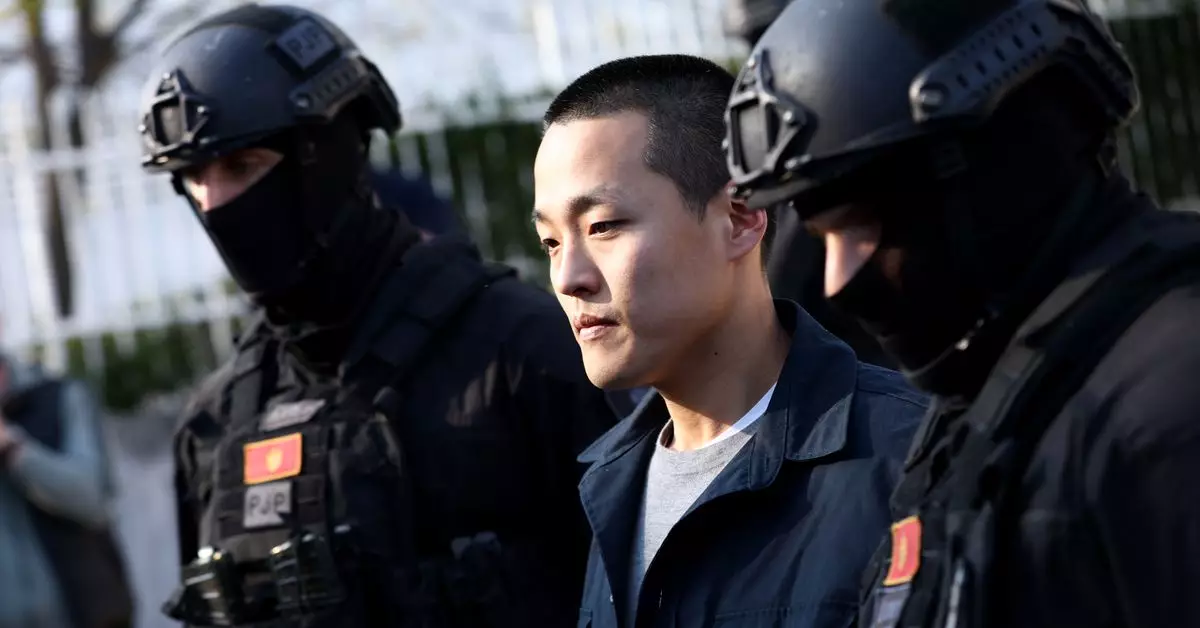The world of cryptocurrency has been nothing short of a rollercoaster ride, with its fair share of triumphs and disasters. Among the most controversial figures is Do Kwon, co-founder of Terraform Labs, whose operations led to one of the most significant meltdowns in digital currency history. Following the catastrophic collapse of the TerraUSD stablecoin and its counterpart, Luna, in 2022, Kwon has faced a whirlwind of legal challenges. The fallout resulted in over $40 billion evaporating for investors, raising serious questions about accountability and regulation in this rapidly evolving sector.
Recently, the Montenegro Ministry of Justice made headlines by announcing that Kwon will be extradited to the United States to face federal charges, marking a critical pivot in his legal saga. This decision follows Kwon’s arrest in Montenegro over a year prior, highlighting the international ramifications of the case. The process of extradition is often complex and rife with legal nuances, and Montenegro has been deliberating requests from both the U.S. and South Korea. The Ministry indicated that U.S. legal criteria justified their decision, emphasizing the need for judicial proceedings to commence in America.
However, the timing remains ambiguous; there is no clear indication as to when Kwon will be formally sent to the U.S. for trial. The situation is further complicated by Montenegro’s prior intention to extradite him to South Korea, underscoring the intricacies of international law, particularly in a climate where nations are increasingly clamping down on financial impropriety.
The gravity of the allegations against Kwon cannot be overstated. He is facing multiple charges from U.S. federal prosecutors, including wire fraud, securities fraud, and conspiracy to engage in market manipulation. Such charges suggest a calculated deceit that has resulted in extensive financial ruin, pushing regulatory bodies to reevaluate the oversight mechanisms in place within the cryptocurrency realm.
Moreover, in a parallel development, Kwon and Terraform Labs are also embroiled in a lawsuit with the Securities and Exchange Commission. They reached a tentative agreement to pay more than $4.5 billion, which further highlights the extensive legal battles surrounding Kwon. The enormity of these allegations signals a potential precedent for future cases in the cryptocurrency landscape, serving as a stern warning to other players in the industry.
Kwon’s situation serves as a pivotal moment for cryptocurrencies, demanding a closer look at the regulatory framework governing digital assets. The cryptocurrency sector has often prided itself on innovation and decentralization, but the Kwon saga demonstrates the urgent need for regulatory clarity and consumer protection. The losses suffered by investors could catalyze stricter policies and standards aimed at safeguarding the public.
As Kwon prepares to face justice — whether in the U.S. or elsewhere — it reinforces the growing scrutiny and potential reshaping of regulatory environments across the globe. While Kwon navigates the complexities of extradition and prosecution, stakeholders in the cryptocurrency space are left to ponder the future, as trust and integrity become increasingly paramount in restoring investor confidence.

